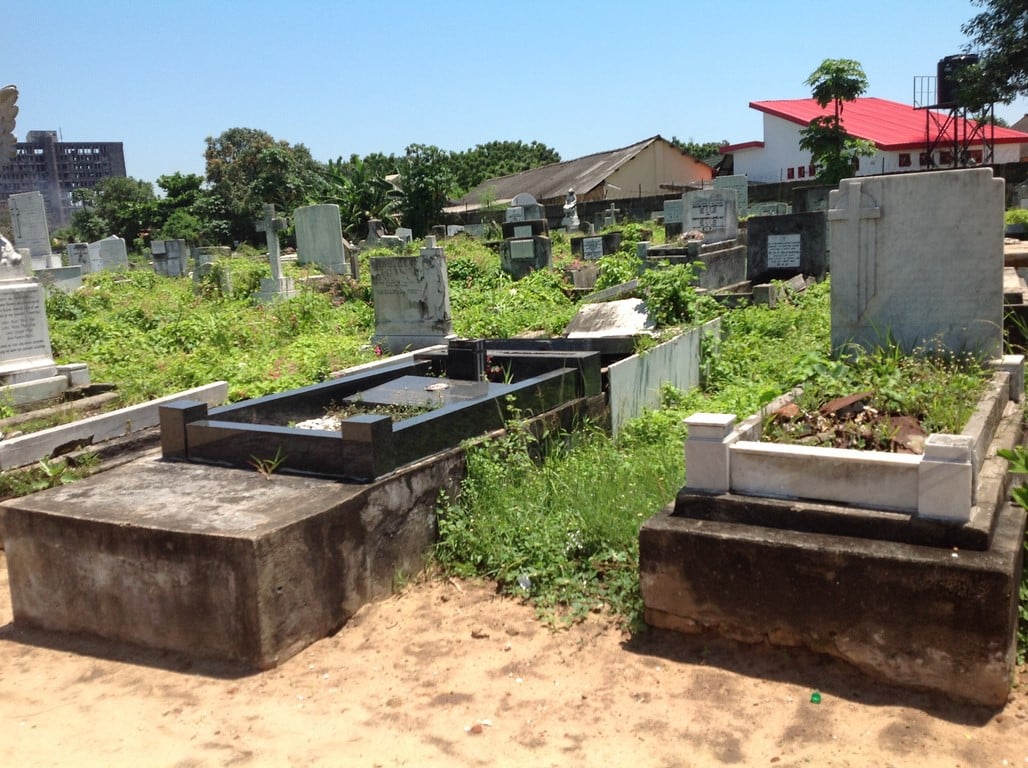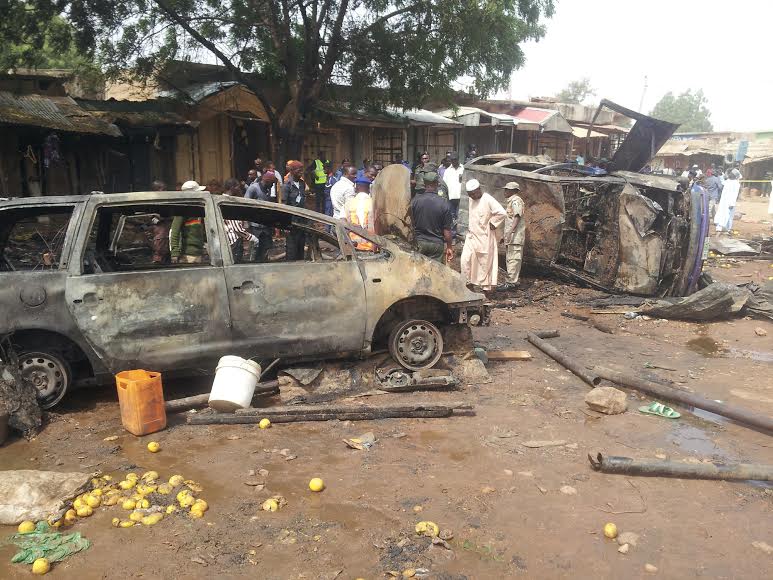“May the soul of the faithful departed rest in perfect peace. Amen.”
These were the closing words at the burial of Anthony Ademodi, a 40-year-old who had just died after brief illness and was being buried at the Ikoyi cemetery, Lagos, Nigeria.
The family and friends of the young man, who was eulogised to have lived “a short but selfless life”, were still soaked in their own tears as the crying consoled the tearful.
Tears flowed like a ceaseless fountain as those concerned made their way from Ademodi’s resting place. They looked back at intervals, hoping for a miracle that would see them have their young brother again.
Advertisement
“Is that the end of Tony,” the lady, who was confirmed to TheCable as his sister, asked while leaving her brother’s resting place. But she was held by her friends who were themselves in tears.
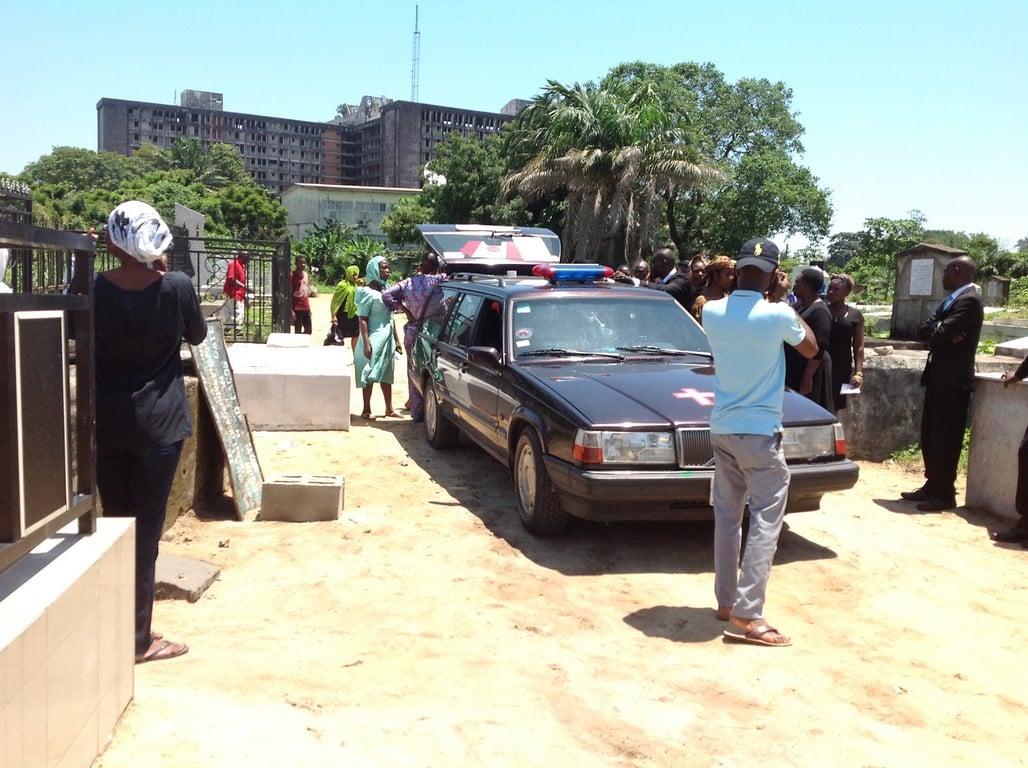
In a few minutes, it was goodbye to Tony, as the family and friends made their way out of the cemetery. It was tears for the family; it was joyful cash for the undertakers and the funeral managers.
IN LAGOS CEMETERIES, IT IS EXPENSIVE TO REST IN PEACE
After the burial, the unperturbed caretakers were approached. One of them was willing to talk. A second said he would not reveal anything to us if he knew we were investigating the cemetery.
Advertisement
When asked how much it cost to get a resting place for the dead, he was characteristically enthusiastic and led the reporter through the burial vaults within the cemetery.
We eventually got to what looked like the end of the cemetery, where new vaults had been dug up to receive “Nigeria’s teeming dead”, as he described it.
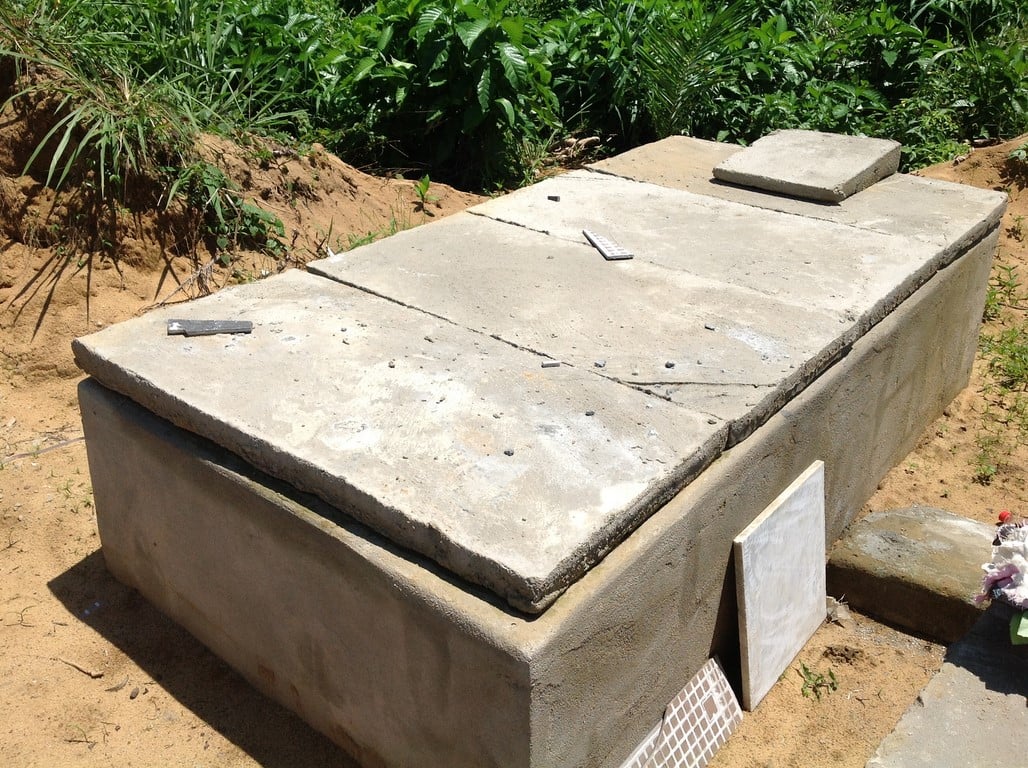
“You see these vaults here, N480,000 for one space,” Ladi Sanwo, who inherited the business from his father, told TheCable.
“If you want to add marble, the price for that is separate and its N500,000. In all, you’d pay N980,000 for the vault, the plastering, the covering, the marble and your own inscription.
Advertisement
“Is that the final price,” TheCable asked. The man retorted with the cliché common to every informal transaction in Nigeria: “Mi o charge yin,” Yoruba for saying the price was not exorbitant.
He revealed that the other burial places that cost less than N480,000 in the same cemetery were temporal and could be dug up after two weeks to accommodate a new body. This explains why many keep complaining after a month that they could not find their dead.
It is unclear if this is responsible for the “missing grave” of Nigerian music act, Margaret Joseph, popularly known as Zara Gretti, who was buried on April 4, 2014, only for her resting place to be declared missing just a year later.
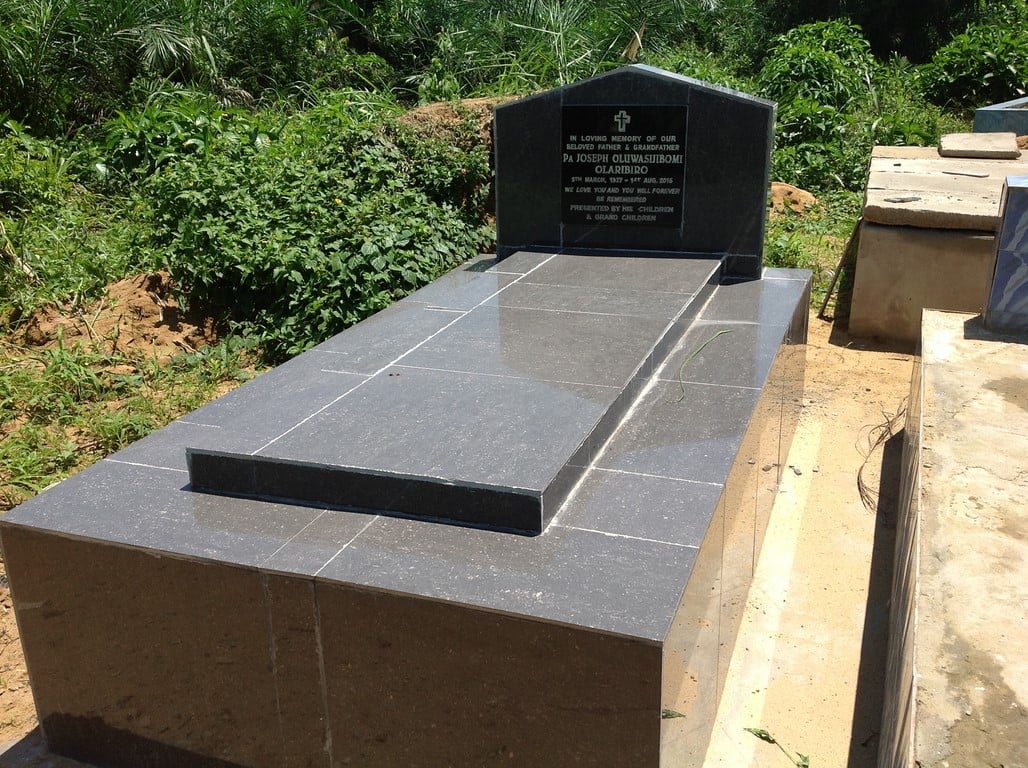
Though Ademodi’s family closed their prayers with “rest in peace”, the young man may not rest in peace, if he was not buried in a N480,000 vault of the public cemetery, as another body may be brought in to displace him in a matter of weeks. In Ikoyi cemetery, it is indeed expensive to rest in peace.
Advertisement
IN DEATH, ALL MEN ARE NOT EQUAL
Eric Blair, better known by his pen name George Orwell, was apt when he wrote in his classic satirical book, Animal Farm, that all animals are equal, but some animals are more equal than others.
In Nigerian cemeteries, all men are made equal by death, but some are more equal than others, by virtue of their resting place.
Advertisement
Bola Tinubu, former governor of Lagos state and national leader of the All Progressives Congress (APC), Nigeria’s ruling party, commissioned Vaults and Garden, a private cemetery in 2006.
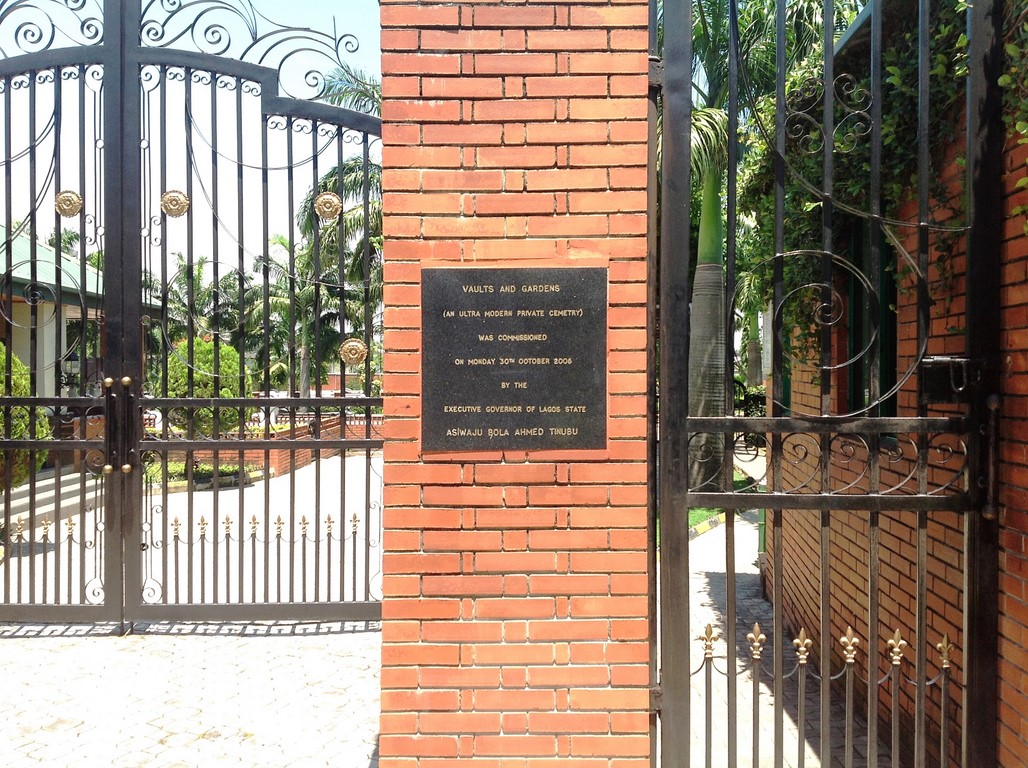
By 2008, the cemetery cost between N700,000 to N10 million for a single vault, depending on density, class and design of the particular vault.
Advertisement
As at 2015, the least one would find for a resting place was for N1 million ($5,000), while the most expensive vault, armed with gated gardens, goes for N70 million.
In Ibadan, Sagamu and Calabar, the capital city of Cross River state, an average vault ranges from N35,000 to N95,000.
Advertisement
Some men would rest in N35,000 ($175), while some others would have their “decaying days” in a N70 million ($350,000) “gated home”.
THIS RESTING PLACE IS A SNAKE FOREST
In order to understand the broad perspective driving public cemeteries in Nigeria, TheCable also visited Sango Cemetery, located at the heart of West Africa’s largest city (by land mass), Ibadan.
Sango, an urban settlement, bordered by highbrow Bodija and mixed-class Mokola area of Ibadan, is less than 10 kilometres away from the University of Ibadan, Nigeria’s first university.
A visit to the cemetery once again reveals that the death business is big business.
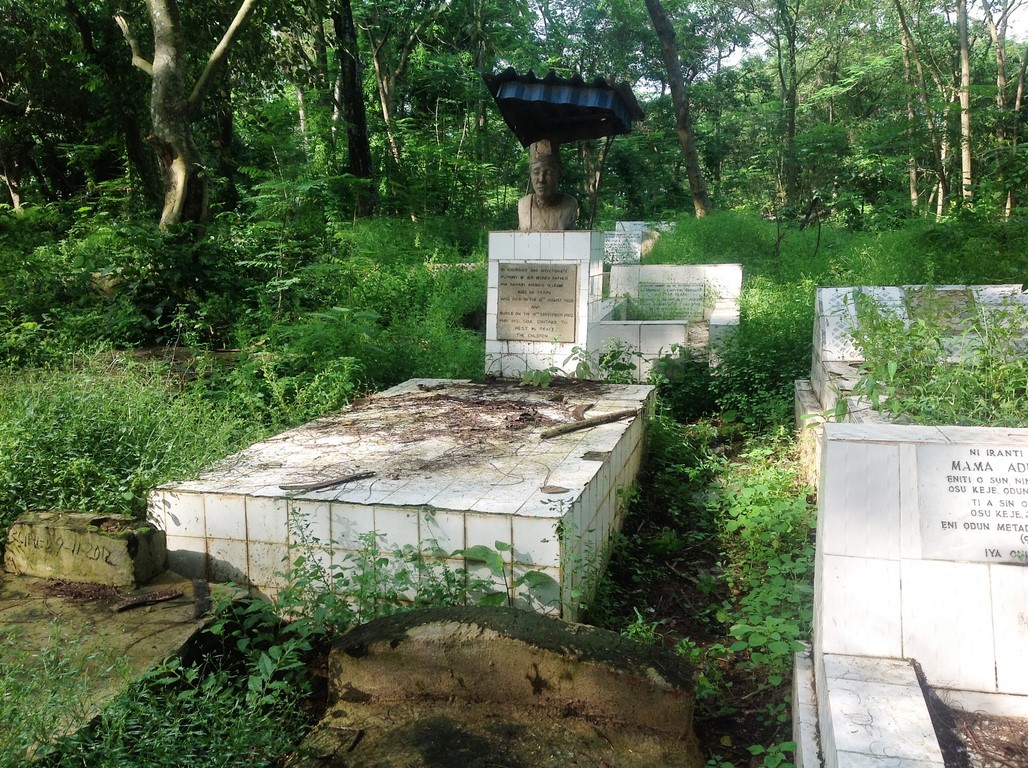
Every visitor to this place regarded as “the snake forest” by a patronising artisan, is welcome by a strong stench of an unkempt home for the dead.
When TheCable visited, the caretakers had just finished burning one of the dangerous snakes said to have found their home in the thick forest of a cemetery.
Wale Akinpelu, a 49-year-old, was just buried the previous day. But in less than 48 hours, his grave had been damaged by an “inexplicable situation”, as Baba Iyabo, the cemetery keeper, said.
Despite the income being remitted to the government from burials in public cemeteries, the cemetery is abandoned in its sorry state.
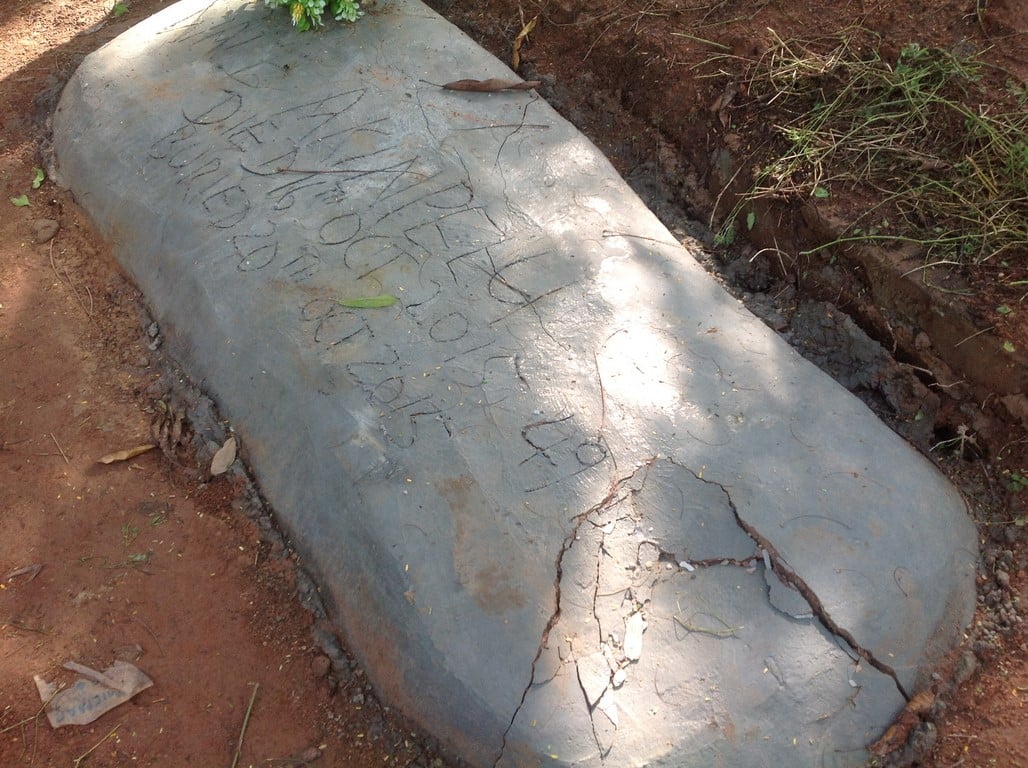
A ‘MAD MAN’ IS ‘CHAIRMAN’ OF CALABAR CEMETERY
According to the Commonwealth War Graves Commission (CWGC), Hawkins road cemetery, Calabar, is older than Nigeria, as it was established by the British at about the time of the second world war.
The cemetery is resting place to 16 gallant soldiers who died in the line of duty, fighting to protect the interest of King George VI and the United Kingdom.
Of all the 26 airports in Nigeria, only one is named after a woman, and that woman is no one but Margaret Ekpo, one of the country’s pioneering female politicians.
Today, her resting place is buried in weed as she shares her final home with a mentally unstable man – who is also a victim of the society’s negligence.
The mentally-ill man was seen to have made a home for himself in the neglected public cemetery, where he stays all day, before going over to Hawkins government school, a public primary, secondary school where he lays his head at night.
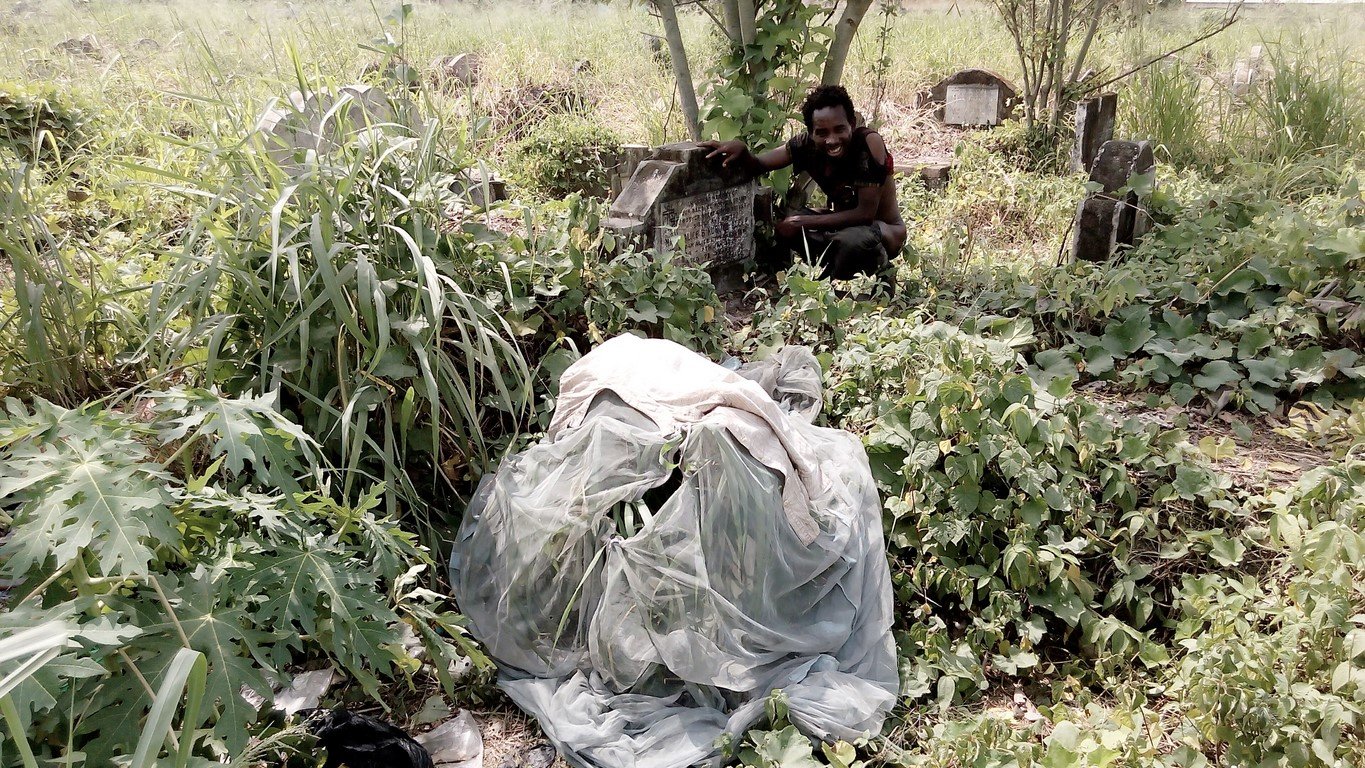
“He lives here, under this tree all day, he is the chairman here, he would cook here, eat here and when night comes, he would go over to the school to sleep at night,” Victor Nyang, the keeper of the cemetery, said.
The “mad man” was seen defecating at a part of his “home”, just right beside one of the graves where he washes his clothes and mosquito net.
The cemetery, like many others in the country, is an eye-sore, totally neglected with just one “security man”.
SOMEHOW, THE DEAD ARE KILLING THE LIVING
According to the latest World Health Organisation (WHO) estimates released in September 2015, there were 214 million cases of malaria in 2015 and 438,000 deaths – Nigeria had the highest number of malaria deaths in the world.
How does this relate to cemeteries?
All the cemeteries visited had open or broken vaults, which are filled with stagnant water in raining seasons, breeding mosquitoes and resulting in avoidable malaria infections and deaths.
In Sagamu, Ogun state, a state-owned cemetery is just a few metres away from the local government office and the palace of the Akarigbo of Remo Land.
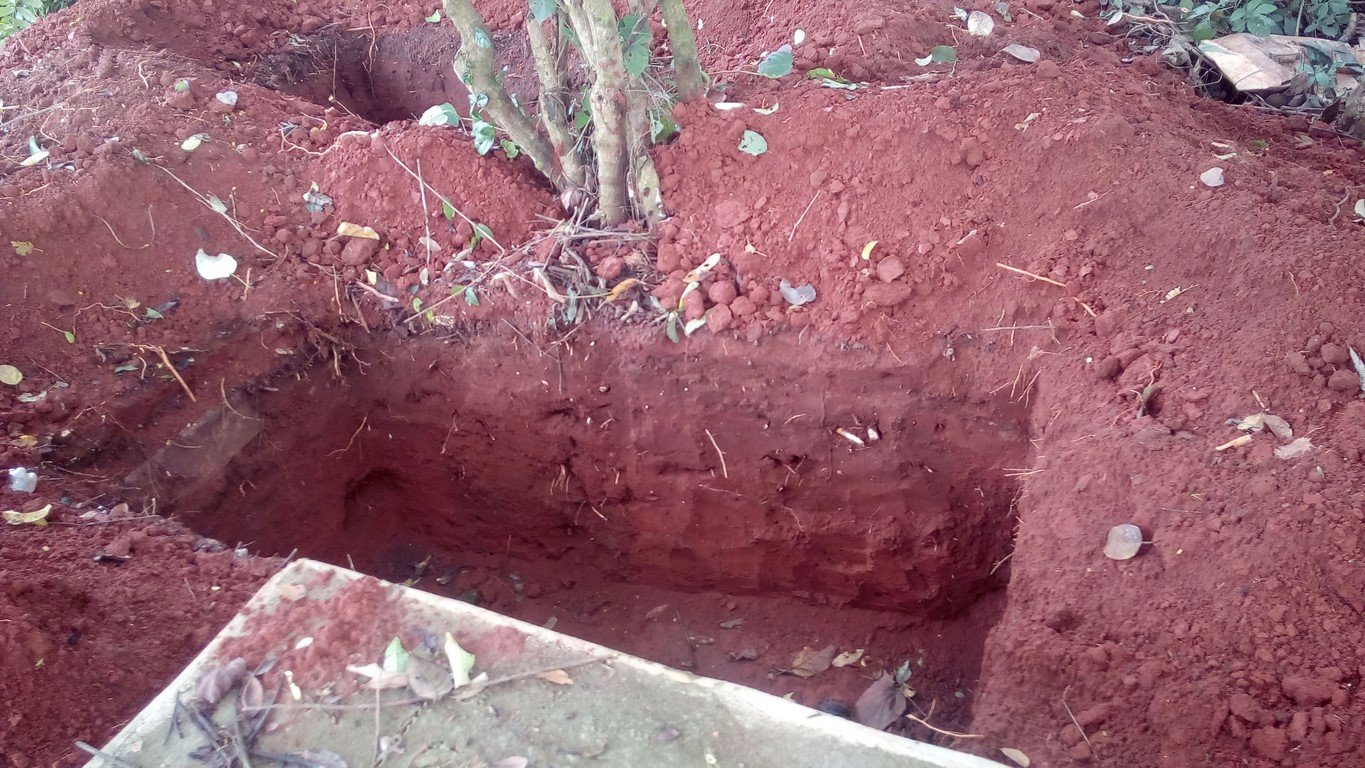
Local government officials who spoke to TheCable found nothing wrong in pre-digging of graves, which were automatic breeding sites for malaria vectors.
The Centres for Disease Control and Prevention (CDC) has identified source reduction – which is removal or permanent destruction of mosquito breeding sites – as one of the valid ways of curbing the disease.
In 2010, Morocco was certified by the WHO as malaria-free, breaking the transmission chain and eliminating the disease via a variiety of methods, including source reduction. In 2014, 13 countries reported zero cases of malaria within their own borders, and they will soon be declared malaria-free.
With our public and private cemeteries acting as breeding sites for mosquitoes, Nigeria will not come near this feat anytime soon, and may be a victim of Dengue fever, also transmitted by mosquitoes.
In 2015, the world is taking renewed steps towards combating its fiery challenges, with the United Nations Sustainable Development Goals all set for a 2016 kick-off.
The WHO Global Technical Strategy for Malaria 2016-2030 – adopted by the World Health Assembly in May 2015 – provides a technical framework for all malaria-endemic countries like Nigeria.
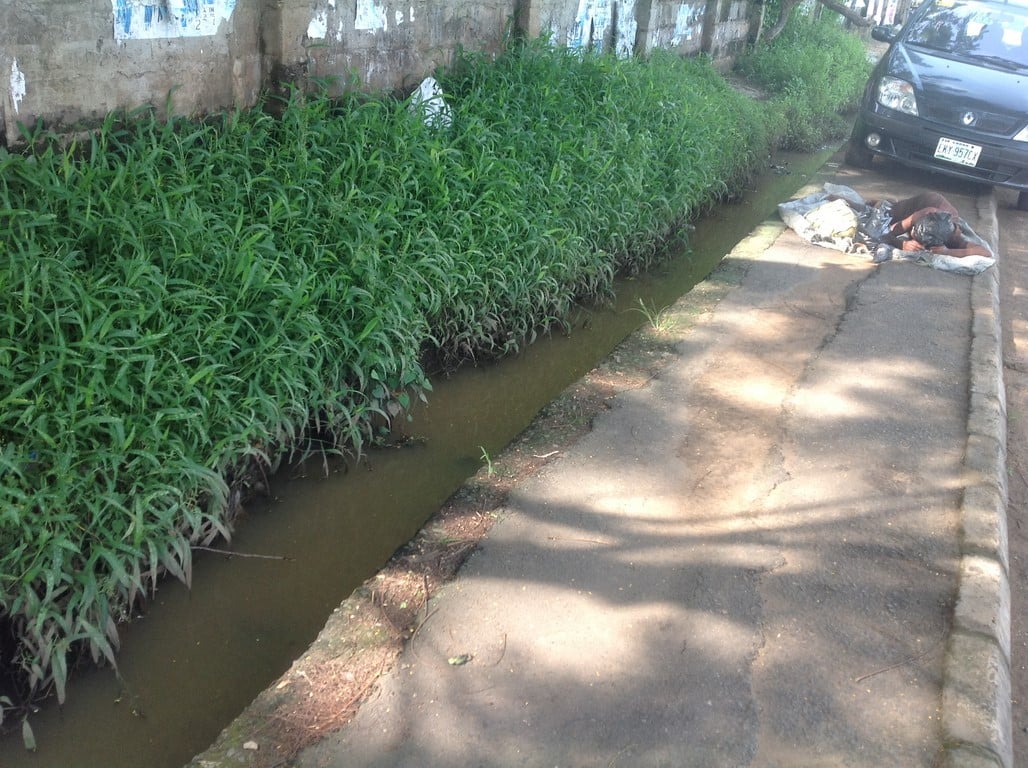
The strategy aims at reducing malaria case incidence and mortality by at least 90 percent by 2030 and eliminating malaria in at least 35 countries by 2030.
If we forget our dead, their resting place will become death traps to us, as they will unwittingly continue to breed what Bill Gates, anti-malaria billionaire, referred to as the world’s most dangerous animal – mosquito. And no matter how good the intentions of the Margaret Ekpos of this nation are, the faithful departed cannot save our souls from the malaria endemic that claim hundreds of thousands of promising young minds.

